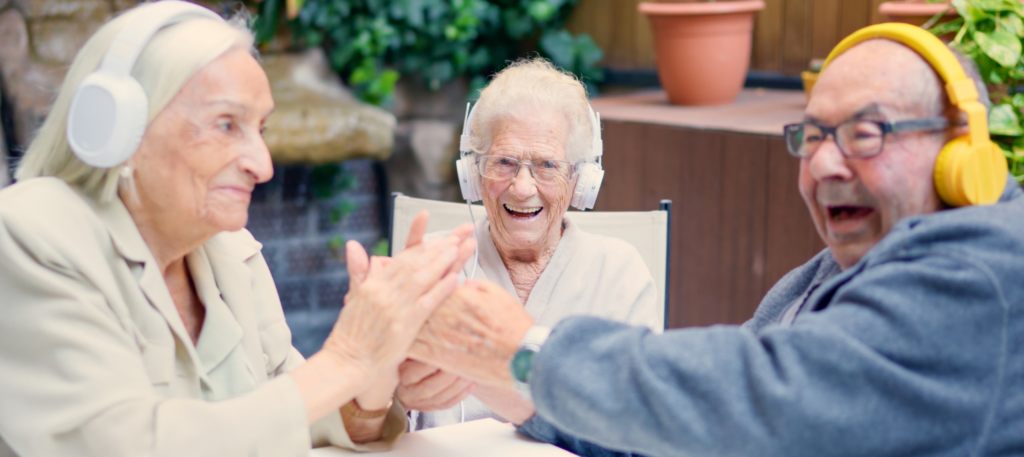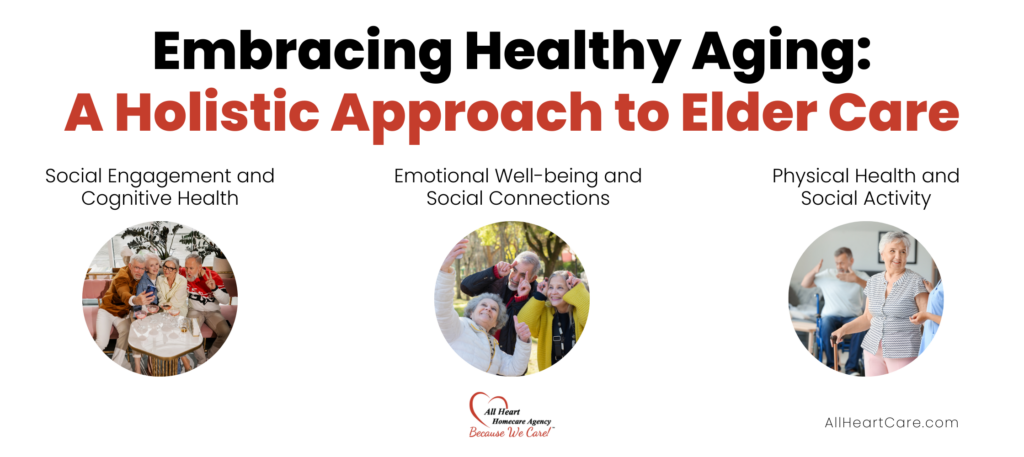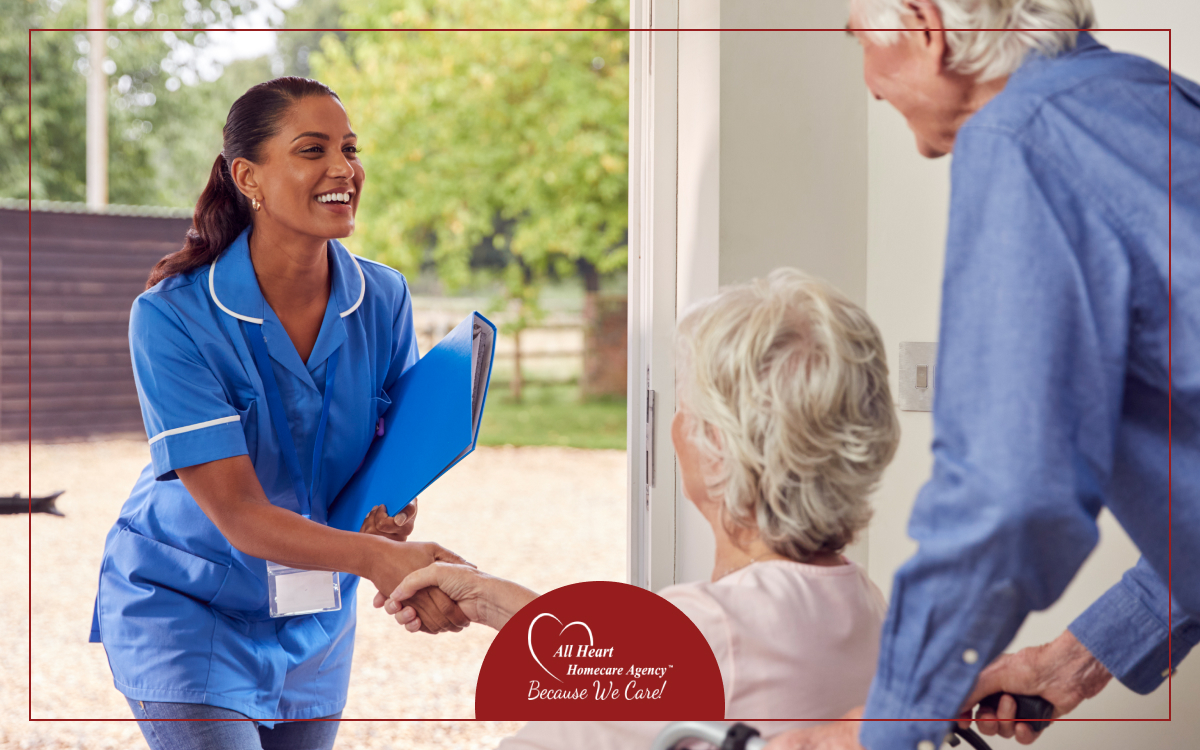Maintaining social connections can become more challenging as people age due to retirement, relocation, or losing loved ones. For seniors, these challenges often result in social isolation, which can significantly impact mental and emotional health. Research has shown that staying socially active is crucial in promoting mental well-being, cognitive health, and physical health. At All Heart Care, we recognize the importance of social engagement for seniors and encourage families and caregivers to prioritize maintaining strong social ties for their loved ones. In this blog, we explore the benefits of social activity for seniors and practical ways to help them stay connected and mentally engaged.

Why Social Activity is Crucial for Seniors:
Loneliness and isolation are common challenges for seniors, particularly as their social networks change due to life transitions. According to the National Institute on Aging (NIA), social isolation and loneliness have been linked to an increased risk of several serious health conditions, including cognitive decline, depression, and even mortality. In contrast, seniors who maintain strong social connections experience lower rates of anxiety, depression, and cognitive impairment.
The benefits of social activity extend beyond mental health. Regular social interaction helps seniors maintain a sense of purpose, increases feelings of belonging, and provides emotional support, all of which contribute to a higher quality of life.

1. Social Engagement and Cognitive Health
Staying socially active is important for emotional well-being and cognitive health. Research suggests that seniors who engage in regular social interactions are less likely to experience cognitive decline. Conversations, group activities, and intellectual discussions stimulate the brain, helping to improve memory, problem-solving skills, and overall cognitive function. Seniors who participate in group activities, such as book clubs, card games, or community classes, engage multiple areas of the brain, including those involved in memory and critical thinking.
2. Emotional Well-being and Social Connections
One of the most significant benefits of social activity is its positive impact on emotional well-being. Social connections provide seniors with emotional support, reduce feelings of loneliness, and increase overall happiness. For many seniors, particularly those living alone or far from family, regular interaction with friends, caregivers, or community members can have a transformative effect on mood and mental health.
- The Role of Social Support in Emotional Health:
Close relationships allow seniors to express their feelings, share their experiences, and receive support when they need it. Emotional support from family, friends, or caregivers reduces the risk of depression, which is more common in socially isolated seniors. According to the American Psychological Association (APA), social engagement is key to maintaining emotional resilience and well-being in older adults.
3. Physical Health and Social Activity
Staying socially engaged can also improve seniors’ physical health. Social interactions often encourage seniors to participate in physical activities, such as group exercise classes, walks in the park, or gardening, which can help improve mobility, strength, and overall physical fitness. In addition, social activities motivate seniors to stay active, which is critical for maintaining independence and preventing chronic conditions. Studies show that socially active seniors have better physical health outcomes, including improved cardiovascular function, lower blood pressure, and enhanced mobility. Group activities like dance classes, yoga sessions, or group walks encourage regular movement while fostering a sense of community. The National Institute on Aging (NIA) highlights the importance of physical activity for maintaining independence and reducing the risk of falls.

How Caregivers Can Help Seniors Stay Socially Active:
Caregivers play an essential role in helping seniors stay socially active. At All Heart Care, our caregivers provide companionship and support, assisting seniors in staying engaged with their communities and families. Here are some ways caregivers can promote social interaction: Organizing Social Activities, Encouraging Technology Use, and Providing Emotional Support and Companionship.
We offer personalized care plans prioritizing social interaction and emotional well-being, helping seniors maintain independence while staying connected to their communities.
Don’t forget it… Social engagement is crucial to healthy aging and provides numerous mental, cognitive, and physical benefits. At All Heart Care, we are dedicated to helping seniors stay socially active and connected to their communities. Contact us today to learn more about our companionship services and how we can support your loved ones.












